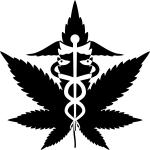As Stat reports, Senators Manchin and Markey have
opioid addiction
Despite the scare tactics of “Reefer Madness” and Harry Anslinger, the “OG” warrior of the federal Bureau of Narcotics, cannabis in the 60s and 70s was not considered a “drug of dependence,
In this mad world, it's OK for college students to guzzle obscene amounts of alcohol (so that they can become adults who will guzzle obscene amounts of alcohol), and
Reprinted with permission. Dr. Singer's original article can be found here.
###
The Atlantic wrote a piece on using buprenorphine in the treatment of opioid addiction and should be congratulated for more widely publicizing opioid substitution therapy.
Marijuana plant, via Shutterstock
One of the biggest hurdles in drug discovery is to take something that was discovered in the lab and make it work in pill form.







